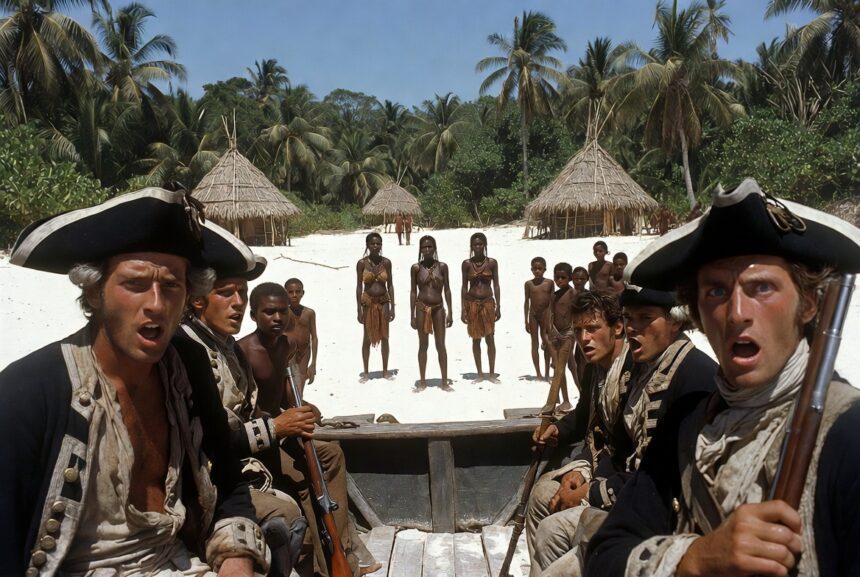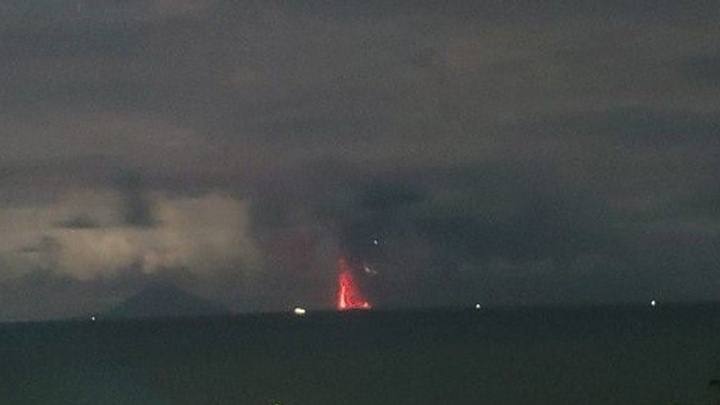The ocean keeps its secrets well, burying them in the silence of the deep or stranding them on forgotten spits of sand where time loses its meaning. Among the countless tales of lost ships and vanished crews, one story endures like a stubborn barnacle on the hull of maritime history—a narrative that is equal parts romantic fantasy and psychological horror. It is the legend of Captain White, a white seafarer who vanished into the blue only to reappear in the whispered lore of sailors as the king of a tiny, uncharted domain.
For fifteen years, this man lived the ultimate male fantasy: the sole ruler of a tropical island, the husband to three women, and the father of a new tribe. But beneath the sun-drenched surface of this “paradise” lies a darker current. Was this a dream fulfilled, or a slow-motion prison sentence? And why, when he finally built the means to escape, did he sail into the horizon and never return for the family he created?
The Discovery of the Forbidden Atoll
The story begins not with White, but with a British exploratory vessel charting the empty quarters of the ocean. The captain, seeking fresh water and perhaps a footnote in history, sighted an island absent from all admiralty charts. It was the archetype of salvation: a lush, green jewel with a sheltered bay, murmuring springs, and fruit-laden trees. It was the kind of place sailors dream of dying in.
As the landing party moved inland, expecting solitude, they stumbled upon the impossible: smoke. Three primitive huts stood in a clearing, the fire still warm. The island was inhabited.
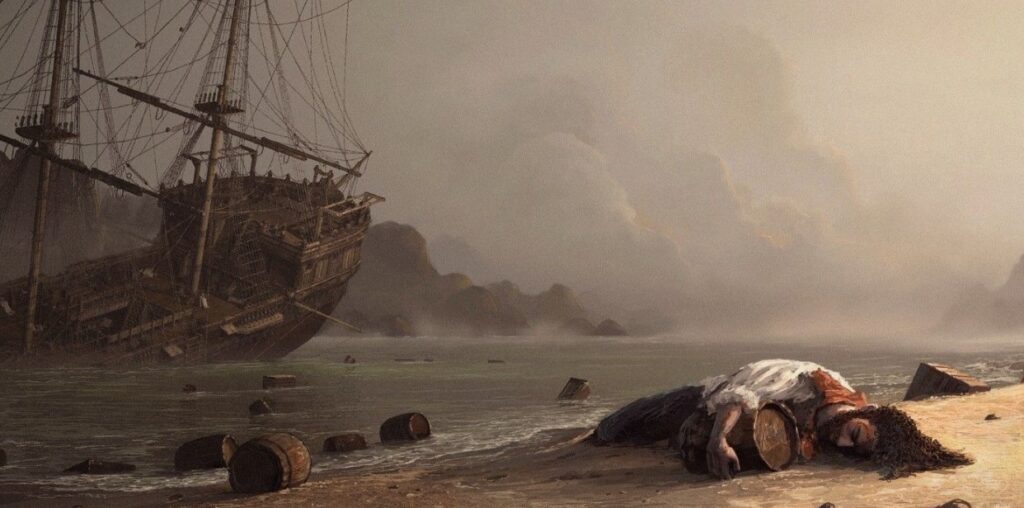
But the inhabitants were not the “savages” of colonial nightmares. They were a matriarchy of three African women surrounded by a brood of healthy, energetic children. The shock for the British sailors was immediate and visceral. The children were clearly of mixed heritage, their skin tones a spectrum that betrayed a father not of the mothers’ race. And then, the final, shattering blow to their assumptions came when one of the women stepped forward and asked in clear, accented English: “Did Captain White send you?”
The Genesis of the Colony
The women’s testimony unspooled a history of tragedy and improbable survival. Fifteen years prior, they had been human cargo on a slave ship bound for the Americas, a vessel of misery that met its end on the reefs. Only three women survived the wreck, washing ashore on this unnamed rock. They were survivors of a brutal system, hardened by trauma but alive.
Then came the second miracle. A battered lifeboat drifted onto the sand, carrying a near-dead white man. He introduced himself as Captain White.

The initial dynamic was fraught with the tension of history. For the women, a white man represented the whip, the chain, and the hold of the ship. But White was stripped of his power, his uniform, and his civilization. He was as naked and vulnerable as they were. In the crucible of survival, race and hierarchy dissolved. He did not command; he cooperated. He was grateful. And slowly, the fear receded, replaced by the pragmatic intimacy of people who need each other to live.
From this alliance, a new society was born.
The Polygamous Kingdom
Over time, the relationship evolved from survival partnership to something far more complex. Captain White became the husband to all three women. The island transformed into a microcosm of a new world order—a multinational, multiracial kingdom ruled by a single patriarch.
To the sailors listening in the pub years later, this sounded like the ultimate jackpot. A tropical climate, abundant food, three devoted wives, and absolute freedom from the crushing gears of industrial society. No taxes, no bosses, no church to condemn their union. Just man, woman, and nature.
The Gilded Cage: The Reality of Isolation
But the fantasy of the “man’s paradise” is often a mirage. Reality, with its grinding friction, always intrudes.
Consider the psychological weight of White’s existence. He was the sole male figure, the emotional and physical fulcrum for three distinct personalities. Three wives meant three sets of emotional demands, three histories of trauma to navigate, and the constant, relentless pressure of provision.
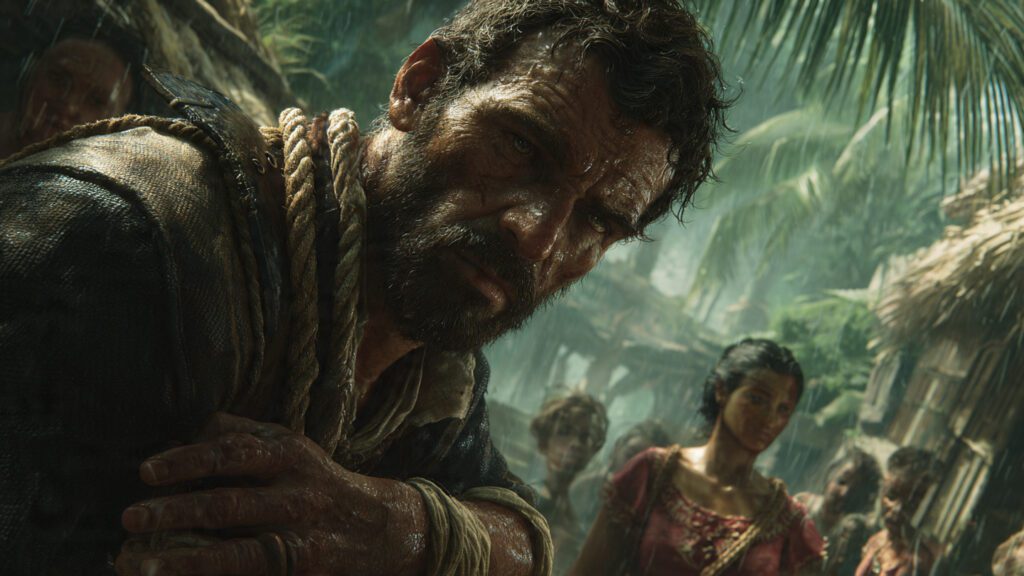
There was no respite. No pub to escape to, no other men to share the burden of labor or conversation. He was isolated not just from civilization, but from his own gender. He became a prisoner of his own success. The construction, the storm-proofing, the fishing—it all fell on him. And as the children grew, looking to him for guidance in a world that ended at the water’s edge, the weight of his responsibility must have been crushing.
Worse still was the ghost of the life Before. Who was Captain White on the mainland? Did a wife in Bristol or Boston weep for a lost husband? Did aging parents stare at the sea, praying for a sail? The paradise of the present is always haunted by the memory of the past.
The Betrayal of the Horizon
Eventually, the dream broke. White made a choice that would define his legacy. He began to build a boat. Not a raft for fishing, but a vessel capable of challenging the open ocean. The construction took months, perhaps years—a daily, physical manifestation of his desire to leave.
When the hull was seaworthy, he gathered his three wives and his numerous children. He looked them in the eye and swore an oath. He told them he was going to bring help. He promised salvation. He vowed, on his honor as a captain and a husband, that he would return.
And then he sailed into the vast, indifferent blue.
He was never seen again.
For fifteen years, the women waited. They watched the horizon until their eyes burned. The children grew into adults, the memory of their father fading into myth. By the time the British ship arrived, White was a ghost, a question mark stamped on their souls. The British captain claimed the discovery of the island, erasing White’s kingdom from the maps, leaving only the story.
The Four Fates of Captain White
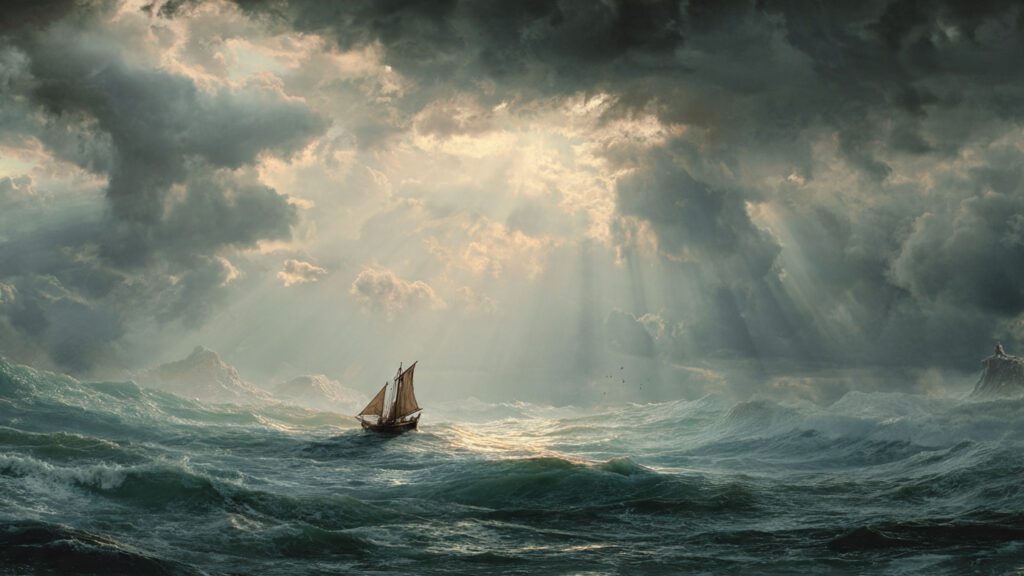
What happened to the King of the Castaways? The silence of history offers four distinct, chilling possibilities:
- The Ocean’s Mercy: The most likely and brutal outcome. His homemade boat failed. A storm, a rogue wave, or simple dehydration claimed him. His bones lie on the abyssal plain or bleached on some uninhabited atoll, his promise unkept because he was dead before he lost sight of the island.
- The Erasure of Memory: He survived the crossing but lost himself. Picked up by a ship or washing ashore delirious with thirst, trauma or tropical fever wiped his mind. He lived out his days as a hollow man in a port city, never knowing that a family waited for him across the sea.
- The Coward’s Exit: He made it back. He reached civilization, tasted bread and wine, heard the news of the world, and realized he could not go back. The burden of three wives and a dozen mixed-race children in a racist, rigid society was too great. He chose to “die” to them to live for himself.
- The Failed Return: He tried. He gathered supplies, tools, and perhaps a crew, intending to turn his island into a true colony. But the ocean is vast and navigation without modern instruments is treacherous. He simply never found the speck of sand again, doomed to search the endless waves until his death.
The Shadow of Tromelen
The story of Captain White resonates because it is not unique. It echoes the dark history of Tromelen Island, where a French crew abandoned 60 Malagasy slaves on a sandspit in 1761, promising to return. They didn’t. Fifteen years later, a rescue ship found only seven women and an eight-month-old baby alive. It echoes Anatahan, where 32 Japanese soldiers killed each other over a single woman.
These are not fairy tales; they are the grim calculus of survival. They reveal that isolation distills humanity down to its rawest elements.
Captain White’s story forces us to confront the duality of our nature. It shows the incredible resilience of the human spirit, the African women who survived slavery and shipwreck to build a home. But it also exposes the fragility of our commitments. White’s escape was either a heroic attempt to save his family or the ultimate act of abandonment.
In the end, the island remains a paradox: a paradise built on a tragedy, a kingdom ruled by a ghost. White sought freedom in the ocean, but perhaps he only found it in the silence of the deep, leaving behind a legacy that is both a dream and a curse.







